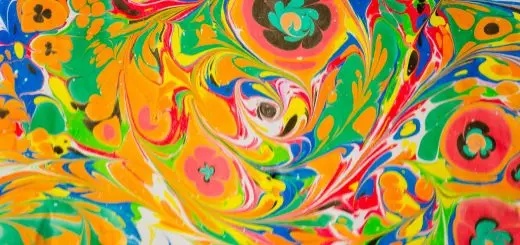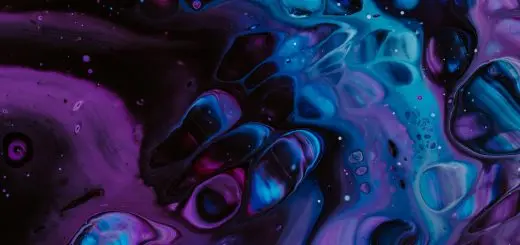The Frog in Different Beliefs: Transformation and Renewal

Looking for more amazing products? Check out our online store and explore our collection here! Happy shopping!
Before diving in, please note: This post is for informational purposes only. If you’d like to know more about how we approach topics, feel free to check out our friendly Disclaimer Page.
Hey there, amazing readers! 
We’re committed to delivering quality posts, and your support (even just sticking around despite the ads) means everything to us. So, bear with us, and thanks for helping us keep the good vibes rolling. Now, on to the fun stuff!
TRANSLATE BUTTON AT THE END OF THE ARTICLE
A Quick Overview
Frogs have long been revered in various cultures around the world for their symbolic significance representing transformation, renewal, and change.
From ancient mythology to contemporary culture, the frog holds a special place in the beliefs and traditions of different societies.
This article delves into the multifaceted symbolism of frogs across different cultures, exploring the spiritual and symbolic meanings associated with these amphibious creatures.
The Frog Symbolism in Various Cultures
Frogs are often seen as symbols of transformation and change in numerous cultures worldwide.
They are believed to possess the ability to transition between two worlds – water and land, making them powerful symbols of adaptability and metamorphosis.
In many traditions, frogs are also associated with fertility, abundance, and new beginnings.
Let’s explore how the symbolism of frogs is interpreted in different cultural contexts.
Frog Symbolism in Ancient Mythology
In ancient mythology, frogs were often associated with deities and supernatural beings.
For instance, in Egyptian mythology, the frog was linked to the goddess Heket, who was seen as a symbol of fertility and childbirth.
In Mesopotamian mythology, the frog was connected to the goddess Tiamat, representing chaos and creation.
These ancient myths underscore the frog’s role as a symbol of transformation and renewal in the context of divine creation and the natural world.
The Frog as a Symbol of Transformation
The frog’s ability to undergo metamorphosis from tadpole to adult amphibian has long been seen as a metaphor for personal transformation and growth.
In many spiritual traditions, the frog is seen as a guide on the journey of self-discovery and enlightenment.
The process of transformation that frogs undergo mirrors the individual’s own capacity for growth and evolution, making them powerful symbols of change and renewal.
Renewal and Rebirth in Frog Symbolism
In various cultures, frogs are associated with renewal and rebirth due to their life cycle that involves stages of transformation and regeneration.
The shedding of old skin and the emergence of a new form symbolize the cyclical nature of life and the opportunity for continual renewal.
Frogs are often seen as messengers of change and new beginnings, inspiring individuals to embrace transformation and embrace the potential for growth and renewal in their lives.
The Frog in Native American Beliefs
In Native American traditions, frogs are revered as symbols of transformation, cleansing, and healing.
They are seen as mediators between the natural and spiritual worlds, guiding individuals through periods of transition and change.
Various tribes view the frog as a symbol of fertility, abundance, and prosperity, embodying the power of renewal and regeneration in the natural world.
The frog’s presence in Native American beliefs underscores its significance as a spiritual and symbolic creature in Indigenous cultures.
Frog Symbolism in Eastern Philosophies
In Eastern philosophies such as Taoism and Buddhism, the frog is often associated with the concept of transformation and enlightenment.
In Taoist teachings, the frog symbolizes yin energy, representing the receptive and nurturing aspects of nature.
In Buddhism, the frog is linked to the story of the Frog King, who embodies the journey of spiritual transformation and awakening.
The frog’s symbolism in Eastern philosophies emphasizes the interconnectedness of all beings and the potential for inner growth and enlightenment.
The Frog in African Mythology
In African mythology, frogs are revered as symbols of rain, fertility, and abundance.
They are often associated with water spirits and deities that bring blessings and prosperity to the land.
In many African cultures, the frog is seen as a sacred creature that embodies the life-giving properties of water and the renewal of the earth.
The frog’s presence in African mythology highlights its symbolic significance as a harbinger of change, growth, and prosperity in the natural world.
Frog Symbolism in European Folklore
In European folklore, frogs are often depicted as magical creatures with the power to bring good luck and fortune to those who encounter them.
In Celtic mythology, the frog is associated with the spirit world and the realm of the fae, serving as a messenger between humans and the supernatural realm.
In Slavic folklore, frogs are believed to possess healing powers and the ability to ward off evil spirits.
The frog’s symbolism in European folklore reflects its mystical and protective qualities as a symbol of luck and prosperity.
The Frog as a Sign of Good Luck
Throughout history, frogs have been considered symbols of good luck and fortune in many cultures.
The frog’s association with water and rain has led to beliefs that encountering a frog can bring blessings of abundance and prosperity.
In some traditions, frogs are seen as guardians of wealth and prosperity, bringing luck and success to those who cross their path.
The frog’s presence as a symbol of good luck underscores its role as a harbinger of positive change and blessings in various cultural beliefs.
The Frog as a Messenger of Change
Frogs are often seen as messengers of change and transformation, guiding individuals through periods of growth and renewal.
Their ability to navigate both land and water symbolizes the dual nature of existence and the need to adapt to changing circumstances.
In many spiritual traditions, encountering a frog is seen as a sign of impending transformation and the need to embrace new opportunities for growth and evolution.
The frog’s role as a messenger of change reminds individuals to remain open to the possibilities of transformation and renewal in their lives.
Frog Symbolism in Contemporary Culture
In contemporary culture, frogs continue to hold symbolic significance as representations of transformation, adaptability, and renewal.
From popular culture references to artistic interpretations, the frog remains a powerful symbol of change and growth in modern society.
Many people resonate with the frog’s symbolic qualities of resilience, flexibility, and regeneration, seeing them as guiding spirits on the journey of personal transformation and self-discovery.
The frog’s symbolism in contemporary culture reflects its enduring relevance as a symbol of change and renewal in the ever-evolving landscape of human experience.
Conclusion
In conclusion, the symbolism of the frog in different cultures is deeply rooted in the themes of transformation, renewal, and change.
From ancient mythology to contemporary beliefs, frogs have been revered as powerful symbols of growth, adaptation, and regeneration.
The frog’s ability to transition between land and water, its life cycle of metamorphosis, and its presence in spiritual teachings all contribute to its symbolic significance as a harbinger of transformation and renewal.
By exploring the multifaceted symbolism of frogs across various cultural contexts, we gain a deeper appreciation for the profound spiritual and symbolic meanings associated with these amphibious creatures.
Whether as a sign of good luck, a messenger of change, or a guide on the path of personal growth, the frog continues to inspire individuals to embrace transformation and renewal in their lives.

The Enlightenment Journey is a remarkable collection of writings authored by a distinguished group of experts in the fields of spirituality, new age, and esoteric knowledge.
This anthology features a diverse assembly of well-experienced authors who bring their profound insights and credible perspectives to the forefront.
Each contributor possesses a wealth of knowledge and wisdom, making them authorities in their respective domains.
Together, they offer readers a transformative journey into the realms of spiritual growth, self-discovery, and esoteric enlightenment.
The Enlightenment Journey is a testament to the collective expertise of these luminaries, providing readers with a rich tapestry of ideas and information to illuminate their spiritual path.
Our Diverse Expertise
While our primary focus is on spirituality and esotericism, we are equally passionate about exploring a wide range of other topics and niches 

To ensure we provide the most accurate and valuable insights, we collaborate with trusted experts in their respective domains 
Our blog originally focused on spirituality and metaphysics, but we’ve since expanded to cover a wide range of niches. Don’t worry—we continue to publish a lot of articles on spirituality! Frequently visit our blog to explore our diverse content and stay tuned for more insightful reads.
Hey there, amazing reader! 
Check out our store here and take a peek at some of our featured products below! Thanks for being awesome!











